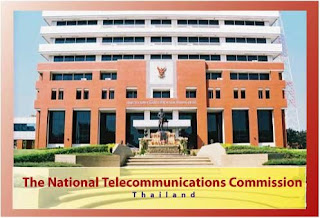
The Nation (19 December 2007)
State agency still needs to agree on a deal for charges with other operators
State agency still needs to agree on a deal for charges with other operators
The board of the national telecom regulator approved the interconnection plan of CAT Telecom on Monday, which set in motion the state agency's entry into the new regulatory framework.
But it remains to be seen whether CAT can reach agreement on bilateral interconnection charge rates with telecom operators, due to its plan to pay a low interconnection rate.
National Telecommunica-tions Commission (NTC) chairman Choochart Phromprasid yesterday said the approval meant the state agency was the latest telecom operator to enter the regulatory scheme.
As the next step, CAT will enter into negotiations with telecom operators on bilateral interconnection charge rates.
The NTC imposed the regulations last November, requiring all telecom operators to bilaterally share voice and data revenue between the networks involved in calls on a fair basis.
According to its interconnection details, CAT plans to pay the origination and termination rates at the same 21 satang per minute. The origination rate is what CAT will pay to the networks that originate calls via its overseas call network.
The termination rate is for CAT and its joint venture cellular service marketer Hutchison-CAT to pay to the networks that receive their calls.
Advanced Info Service (AIS), Total Access Communi-cation (DTAC) and True Move, which signed bilateral interconnection rate deals late last year, have charged each other Bt1 per minute on average for the termination rate.
Currently, CAT shares Bt3 per minute of the revenue with the networks that originate calls via its conventional overseas call network, and Bt1.50 per minute for calls via its overseas call Internet Protocol network.
A telecom-industry source said it would be difficult for CAT to reach bilateral interconnection deals with the three cellular operators when all three have paid and receive the high termination rate of about Bt1 per minute.
They are concerned that if Hutch can pay the low termination rate, it will continue launching heavy promotions, given that it does not have to be burdened with the high interconnection-charge rate and that will prompt heavy Hutch call traffic on their networks, the source added.
DTAC chief commercial officer Thana Thienachariya said the CAT termination rate was unacceptably low. A source at CAT, however, said the calculation was based on the agency's actual business cost.
Thana added that if the cellular operators and CAT could not reach satisfactory agreements on rates, the NTC would intervene and impose interim rates for them.
Recently, DTAC filed a complaint to the NTC that Hutch's call promotions dumped 33 million minutes of call traffic per week on its network, while DTAC sent back only 16 million minutes of traffic per week. The NTC has yet to make a ruling on the matter.
Hutch has about 80,000 customers, while DTAC has more than 16 million